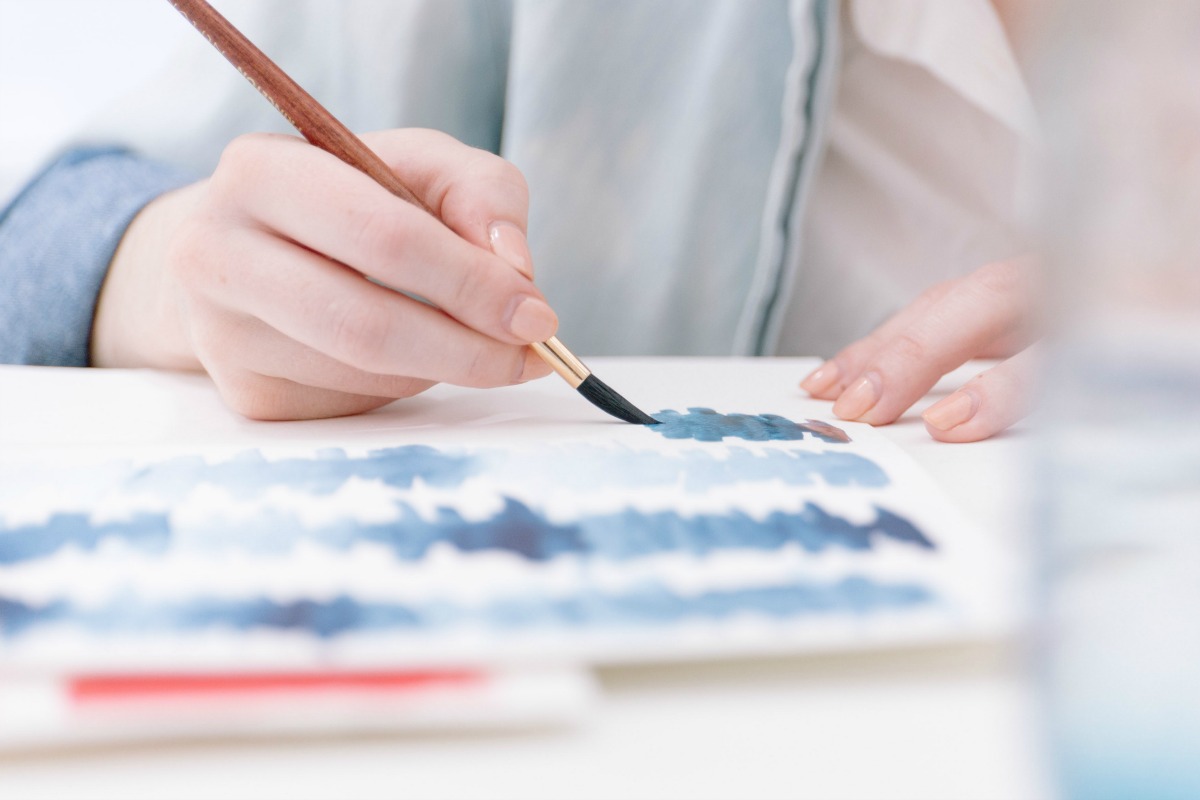I was recently interviewed on Melissa Dinwiddie’s excellent podcast “Creative Now!” about my views on creativity, perfectionism and of course, self-care and self-compassion. She is the author of the book The Creative Sandbox Way: Your Path to a Full-Color Life and here shares her thoughts on Creativity and Self-Compassion, two crucial tools in all our creative sandboxes.
___
As I’ve already shared, the most important practice we can engage in is the practice of getting back ON the wagon. Or if you don’t like the metaphor of falling off the wagon, the most important practice we can engage in is the practice of starting again.
You are human. You will make commitments and life will get in the way and you will break them. It happens.
Breaking a creative commitment to yourself is not a sign that you’re a failure and should give up. It’s not an excuse to beat yourself up; it’s an opportunity to remind yourself how you feel when you’re doing what you love, and to compare that with how you feel when you’re not. It’s a chance to notice, and to choose to start again.
You always get to start again.
And here’s the radical part: although we tend to treat our falling off track as an excuse to beat ourselves up, I challenge you to love yourself up instead. One of my favorite mottos is, “Don’t beat yourself up, love yourself up!” Forgiving yourself and loving yourself up is not just warm, fuzzy mush, nor is it a lazy person’s way to excuse their failures. It’s actually a key to success, according to neuroscience.
In her book, The Willpower Instinct: How Self-Control Works, Why It Matters, and What You Can Do to Get More of It, Kelly McGonigal cites research showing that people who forgive themselves for their willpower failures are dramatically more likely to succeed in their willpower goals than those who beat themselves up.
By the way, forgiving yourself includes allowing yourself to take a fresh start if you fall off track on your commitments, creative or otherwise. This means not doubling up tomorrow’s commitment to thirty minutes if you missed your fifteen-minute commitment today. Just start fresh. Otherwise tomorrow’s commitment is suddenly no longer ridiculously achievable, which means you’re more likely to stumble again, and before you know it that “stupidly small” commitment that was so easy to do feels like an impossibly large “must-do” instead of your ridiculously achievable gift to yourself.
Remember: you always get to take a fresh start.
Despite what you might have learned otherwise, despite the conventional wisdom that “a good beating” might be what we need to get ourselves back in line, research proves that self-compassion, rather than self-flagellation, is the true route to success.*
Every year that goes by, I am more convinced that everything that goes well in my life boils down to these two elements:
1) An awareness of what is working and what isn’t, and how each makes me feel.
2) The ability and willingness to forgive myself and treat myself kindly when I stumble.
I even created a mathematical formula to encompass these concepts, which I call my Golden Formula: self-awareness + self-compassion = the key to everything good.
What does this look like in practice? Here’s an example of the kind of dialogue that often goes on inside my head. Let’s imagine I missed a day of my creative commitment to myself.
Gremlin-directed Me: “Oh, geez. I can’t believe you blew it, again! You couldn’t even manage to fit fifteen minutes in? What a loser!”
Self-compassionate Me: “Oh, sweetie, I know you’re frustrated. I hear you. But it’s okay. You deserve to be treated gently. After all, you’re not the only person on the planet who’s fallen off track. Do you think your friends who fall off track should be beaten up?”
Gremlin-directed Me: “But I’m so angry at myself! I want to kick myself! I’m going to put in twice as much time tomorrow! ”
Self-compassionate Me: “I know you’re upset, dearheart. I hear you. But putting in twice as much time tomorrow is a form of beating yourself up. And remember, loving yourself up — which includes letting yourself take a fresh start — leads to more success in the long run than beating yourself up. It’s neuroscience! So let’s take this as an opportunity. How do you feel right now, having missed a day?”
Gremlin-directed Me: “I feel angry. Sad. Like a failure. Worthless…”
Self-compassionate Me: “Oh, those are such painful feelings, my poor, sweet one. Let me put my arm around you. It’s so good to notice that missing a day makes you feel that way! How do you feel when you keep your commitment and don’t miss a day?”
Gremlin-directed Me: “I feel proud of myself. Well, I might not always like what I create — often I feel crappy about not being a better artist — but I feel good about showing up and sticking with my commitment.”
Self-compassionate Me: “Wow, that’s a big difference! That’s so great to notice how much better you feel when you stick with your commitment. Now what can we do right now to soothe you and love you up?”
Gremlin-directed Me: “Hmmm… Maybe I can do a one-minute doodle before going to sleep, and then get to bed now, so I can get up as early as possible tomorrow and have a better chance at having a better day.”
Self-compassionate Me: “Sounds like a brilliant idea! Let’s do it!”
You can have a conversation like this with yourself anytime, either in your head or on paper. It may seem silly, but it works surprisingly well. Dr. Neff even recommends self-soothing by gently rubbing your arms. I find it very helpful and perhaps you will, too.
Start to put yourself under the scientist’s microscope and the detective’s magnifying glass and pay attention to when your automatic reaction is to beat yourself up. I lovingly challenge you to intentionally change this pattern. You may even want to recruit a trusted loved one to support you. My husband knows the ways I tend to beat myself up, my common gremlin scripts, and he has learned to gently remind me to treat myself kindly.
If you’re anything like me, complete change won’t happen overnight — self-awareness and self-compassion are lifelong practices. And remember, we get to be compassionate with ourselves in our imperfect practice of self-compassion. If you take this practice on, you will not only find it a kinder, gentler way to live, I’ll bet you’ll find yourself more productive, to boot!
Creative Invitation:
What is something you tend to beat yourself up about a lot?
From the voice of Self-compassionate You, write a loving, forgiving letter to yourself as if you are a beloved five-year-old child.
—
 Melissa Dinwiddie runs a creative consultancy that helps organizations, teams, and individuals unleash creative potential so they can thrive. She is the author of The Creative Sandbox Way: Your Path to a Full-Color Life, and host of the podcast Live Creative Now! Learn more at www.melissadinwiddie.com.
Melissa Dinwiddie runs a creative consultancy that helps organizations, teams, and individuals unleash creative potential so they can thrive. She is the author of The Creative Sandbox Way: Your Path to a Full-Color Life, and host of the podcast Live Creative Now! Learn more at www.melissadinwiddie.com.









